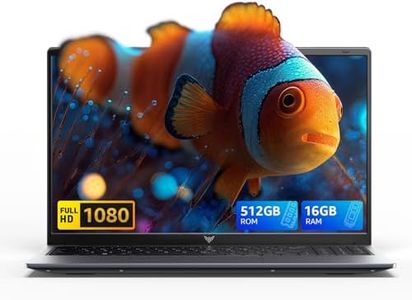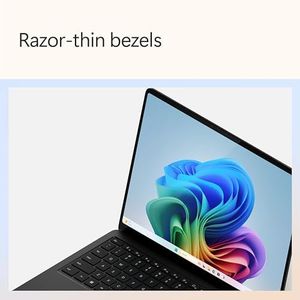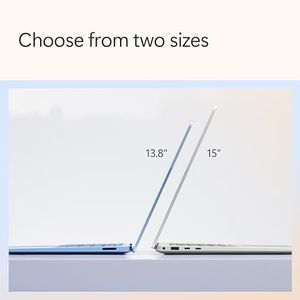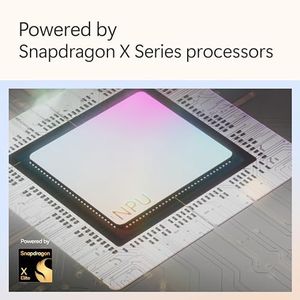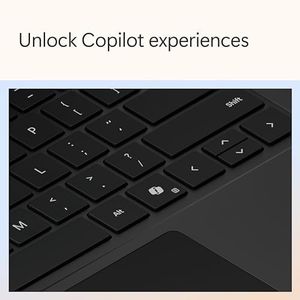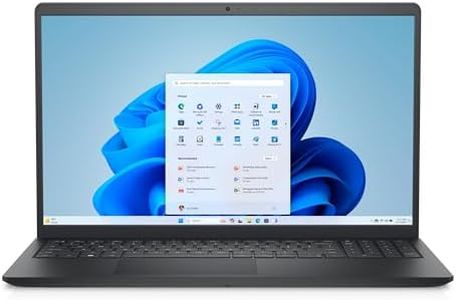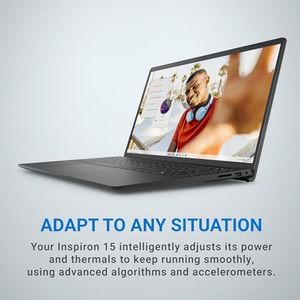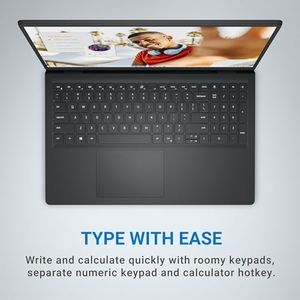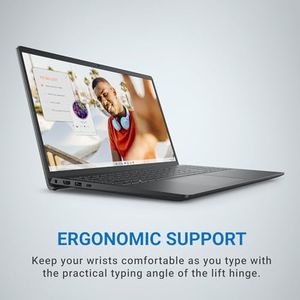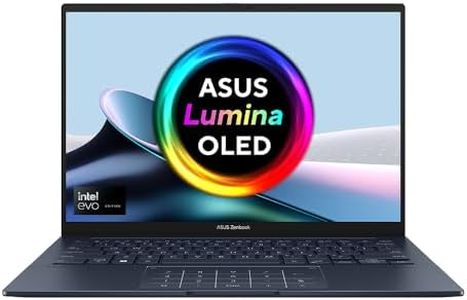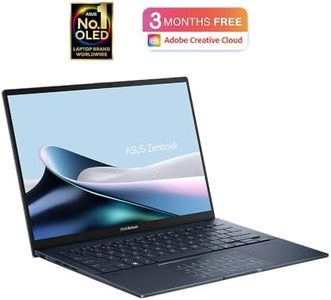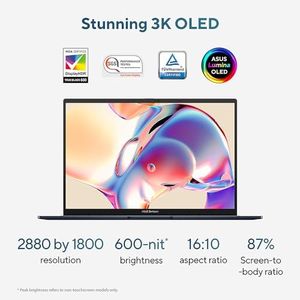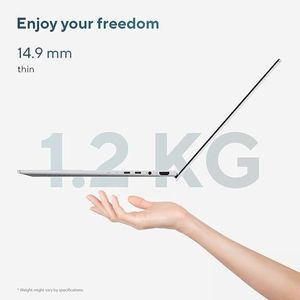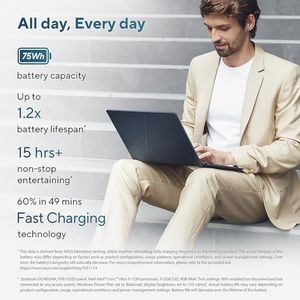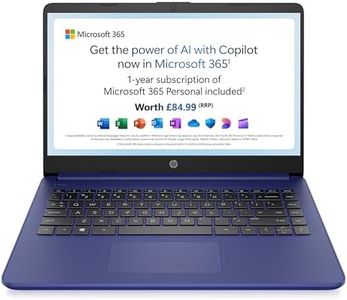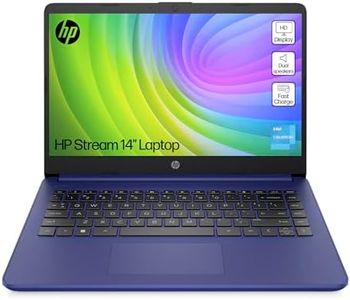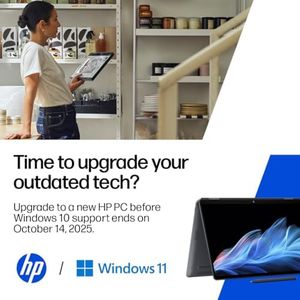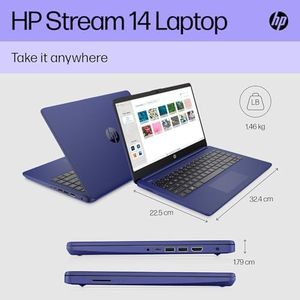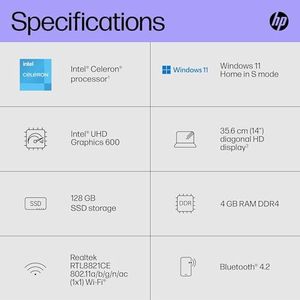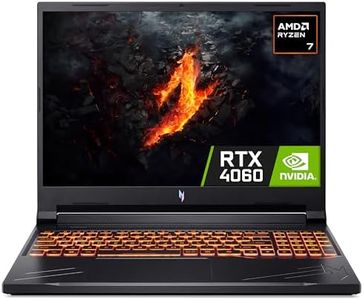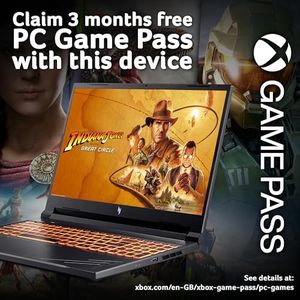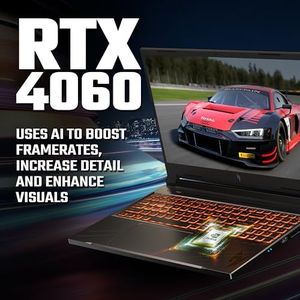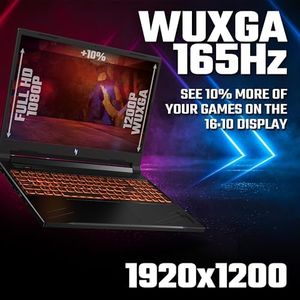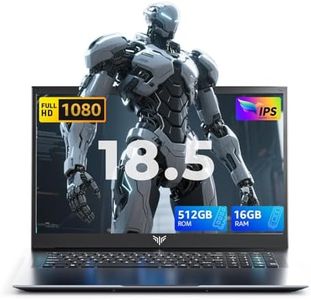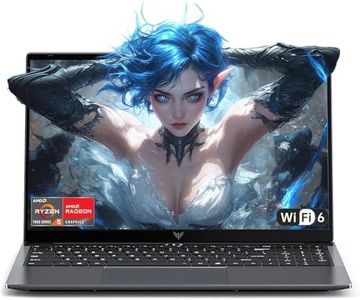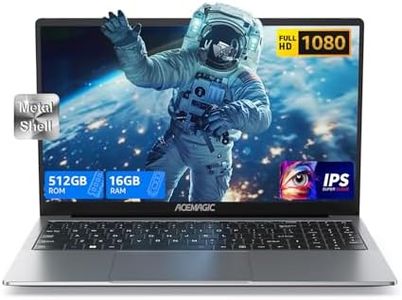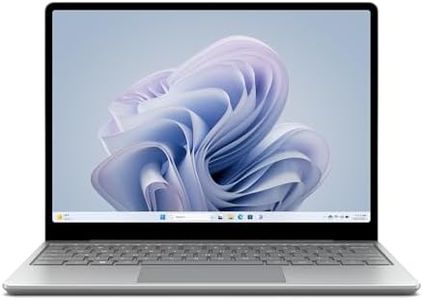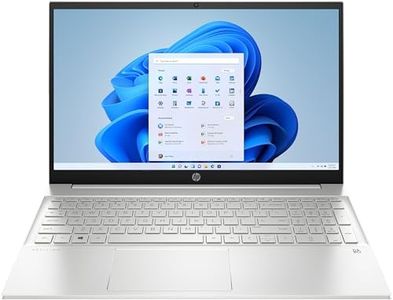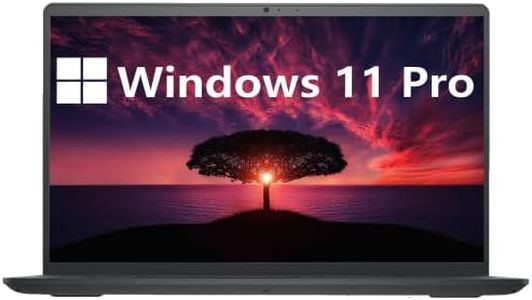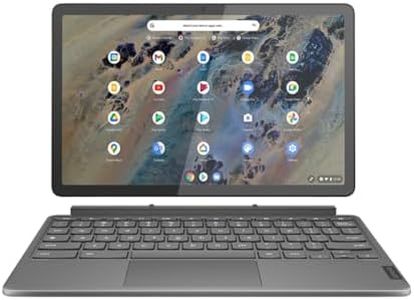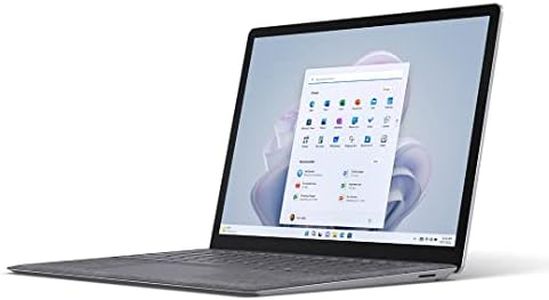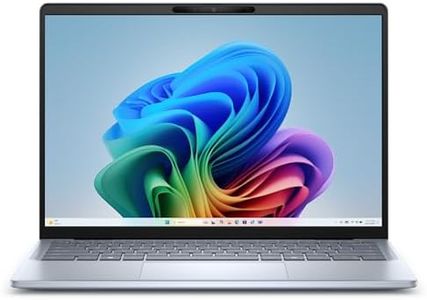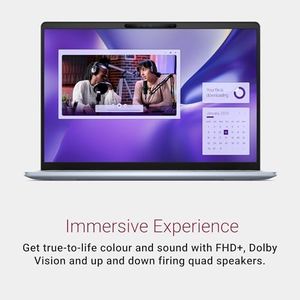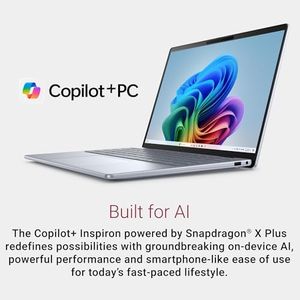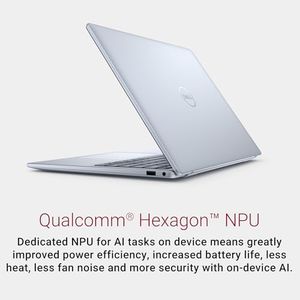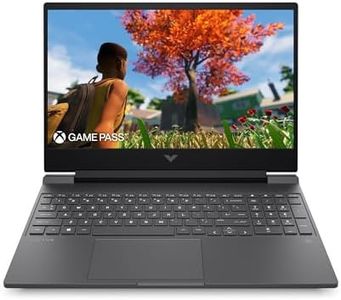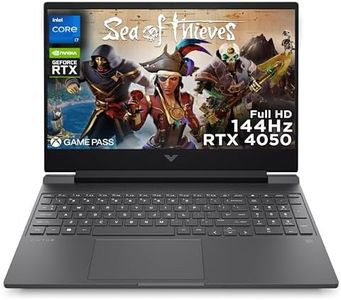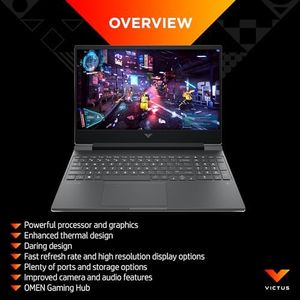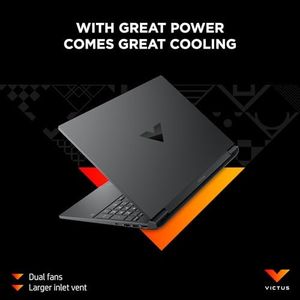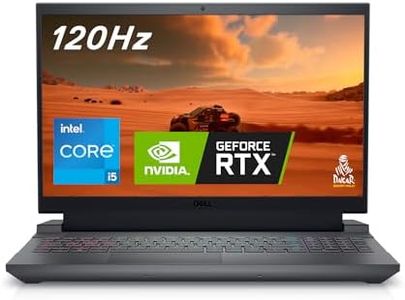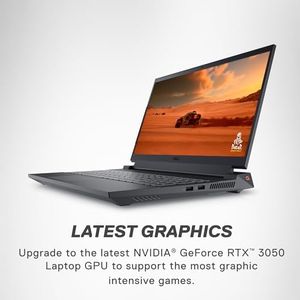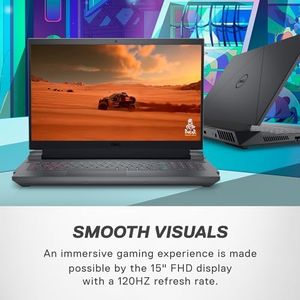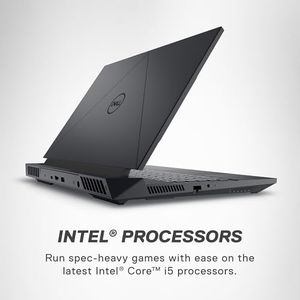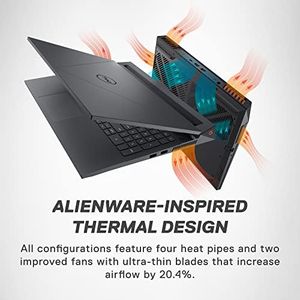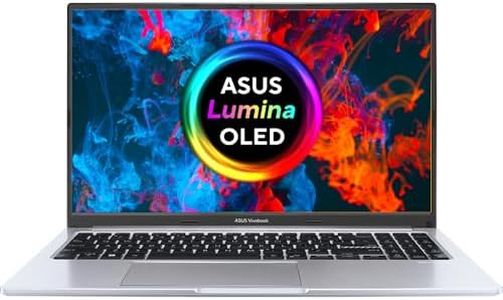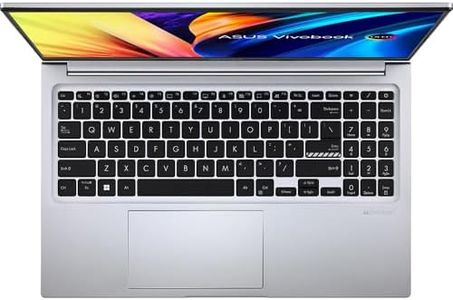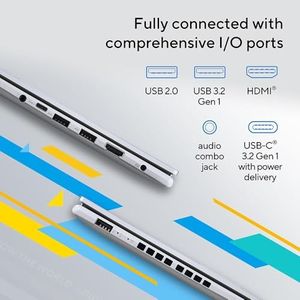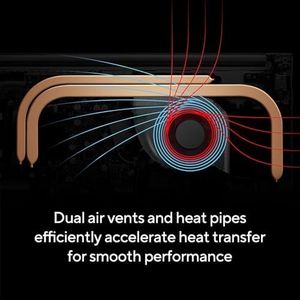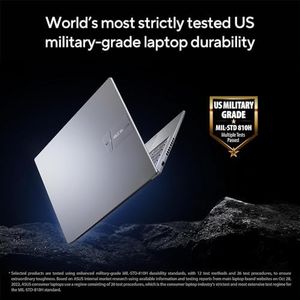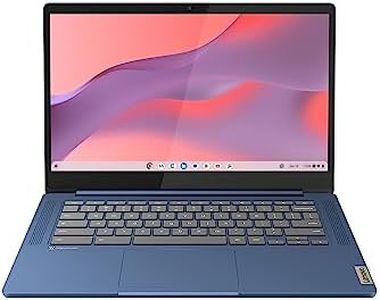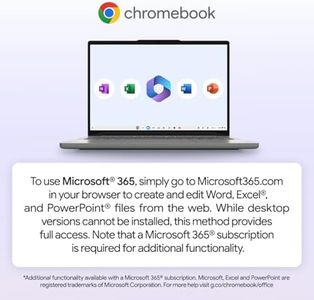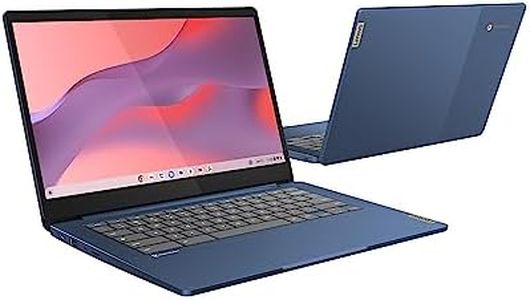We Use CookiesWe use cookies to enhance the security, performance,
functionality and for analytical and promotional activities. By continuing to browse this site you
are agreeing to our privacy policy
10 Best PC laptops
From leading brands and best sellers available on the web.By clicking on a link to a third party's website, log data is shared with that third party.
Top 10 Best PC laptops 2026 in the UK
#1
Winner
Microsoft Surface Laptop | Copilot+ PC | 15” Touchscreen | Snapdragon® X Elite | 32GB Memory | 1TB SSD | Latest Model, 7th Edition | Black
Microsoft Surface Laptop | Copilot+ PC | 15” Touchscreen | Snapdragon® X Elite | 32GB Memory | 1TB SSD | Latest Model, 7th Edition | Black
Processor (CPU): Snapdragon X Elite
RAM: 32 GB
Storage: 1 TB SSD
Graphics Card (GPU): Integrated
Display: 15-inch touchscreen, 2736x1824
Battery Life: 5806 mAh
Portability: 1.66 kg
Chosen by 1382 this week
Dell Inspiron 15 3535 15.6 inch FHD+ (1920 x 1080) Laptop, AMD Ryzen 5 7520U Processor, AMD Radeon Graphics, 8GB RAM, 512GB SSD, Windows 11 Home, English Keyboard, Carboon Black
Dell Inspiron 15 3535 15.6 inch FHD+ (1920 x 1080) Laptop, AMD Ryzen 5 7520U Processor, AMD Radeon Graphics, 8GB RAM, 512GB SSD, Windows 11 Home, English Keyboard, Carboon Black
Processor (CPU): AMD Ryzen 5 7520U
RAM: 8 GB LPDDR5
Storage: 512 GB SSD
Graphics Card (GPU): Integrated AMD Radeon
Display: 15.6-inch FHD, 1920x1080, 120Hz
Portability: 1.66 kg, under 2 cm thick
ASUS Zenbook 14X OLED UX3405MA 14.0" 120Hz 3K Touchscreen Laptop (Intel Core Ultra 9-185H, 32GB RAM, 1TB SSD, Backlit Keyboard, Windows 11) Intel EVO Certified, Blue
ASUS Zenbook 14X OLED UX3405MA 14.0" 120Hz 3K Touchscreen Laptop (Intel Core Ultra 9-185H, 32GB RAM, 1TB SSD, Backlit Keyboard, Windows 11) Intel EVO Certified, Blue
Processor (CPU): Intel Core Ultra 9-185H, 16 cores
RAM: 32GB LPDDR5X
Storage: 1TB PCIe Gen4 SSD
Graphics Card (GPU): Integrated Intel graphics
Display: 14-inch OLED, 3072x1920, 120Hz
Battery Life: 75Wh battery, Intel EVO certified
Portability: 1.25 kg, 1.49 cm thick
HP Stream 14" Laptop | Intel N4120 Processor | 4 GB RAM | 128 GB SSD | Intel UHD Graphics | HD Display | Dual Speakers | Microsoft 365 Personal 12 month included | Win 11 | Indigo Blue | 14s-dq0033sa
HP Stream 14" Laptop | Intel N4120 Processor | 4 GB RAM | 128 GB SSD | Intel UHD Graphics | HD Display | Dual Speakers | Microsoft 365 Personal 12 month included | Win 11 | Indigo Blue | 14s-dq0033sa
Processor (CPU): Intel Celeron N4120
RAM: 4 GB
Storage: 128 GB SSD
Graphics Card (GPU): Integrated Intel UHD Graphics
Display: 14 inch, 1366x768, Anti Glare
Battery Life: All-day use, fast charging
Portability: Lightweight, 1.46 kg
Acer Nitro V16 ANV16-41 Gaming Laptop - AMD Ryzen 7 8845HS, 16GB, 1TB SSD, NVIDIA GeForce RTX 4060, 16" WUXGA 165Hz, Windows 11 , Black
Acer Nitro V16 ANV16-41 Gaming Laptop - AMD Ryzen 7 8845HS, 16GB, 1TB SSD, NVIDIA GeForce RTX 4060, 16" WUXGA 165Hz, Windows 11 , Black
Processor (CPU): AMD Ryzen 7 8845HS
RAM: 16 GB DDR5
Storage: 1 TB SSD
Graphics Card (GPU): NVIDIA GeForce RTX 4060 8GB
Display: 16-inch WUXGA (1920x1200) IPS, 165Hz
Battery Life: 57 watt-hour
Portability: 3.82 kg
Dell Inspiron 14 Plus Copilot+ PC 7441 Laptop 14" QHD+ 60Hz 16:10 Touch Display, Snapdragon X Plus, Qualcomm Adreno Graphics, 16GB RAM, 1TB SSD, Windows 11 Home, English-UK Backlit AI Keyboard
Dell Inspiron 14 Plus Copilot+ PC 7441 Laptop 14" QHD+ 60Hz 16:10 Touch Display, Snapdragon X Plus, Qualcomm Adreno Graphics, 16GB RAM, 1TB SSD, Windows 11 Home, English-UK Backlit AI Keyboard
Processor (CPU): Snapdragon X Plus, 10 cores, 3.4 GHz
RAM: 16 GB LPDDR5X
Storage: 1 TB SSD
Graphics Card (GPU): Qualcomm Adreno 740 integrated
Display: 14-inch QHD+ touchscreen, 2560x1600
Portability: 1.4 kg
HP Victus 15" Gaming Laptop, Intel Core i7-12650H, 16 GB RAM, 512 GB SSD, NVIDIA GeForce RTX 4050 Graphics, FHD Display, 144Hz, Up to 8.5 hrs battery, Win 11, Mica Silver, 15-fa1003sa
HP Victus 15" Gaming Laptop, Intel Core i7-12650H, 16 GB RAM, 512 GB SSD, NVIDIA GeForce RTX 4050 Graphics, FHD Display, 144Hz, Up to 8.5 hrs battery, Win 11, Mica Silver, 15-fa1003sa
Processor (CPU): 12th Gen Intel Core i7
RAM: 16 GB
Storage: 512 GB SSD
Graphics Card (GPU): NVIDIA GeForce RTX 4050
Display: 15.6-inch Full HD, 144Hz
Battery Life: 8.5 hours
Portability: 2.29 kg
ASUS Vivobook 15 OLED X1505ZA - 15.6" Full HD Laptop (Intel i5-12500H, 16GB RAM, 1TB PCIe SSD, 400nits OLED Screen, Windows 11 Home)
ASUS Vivobook 15 OLED X1505ZA - 15.6" Full HD Laptop (Intel i5-12500H, 16GB RAM, 1TB PCIe SSD, 400nits OLED Screen, Windows 11 Home)
Processor (CPU): Intel Core i5-12500H
RAM: 16 GB
Storage: 1 TB PCIe SSD
Graphics Card (GPU): Intel Iris Xe Graphics
Display: 15.6-inch Full HD OLED, 1920x1080
Battery Life: 7 Hours
Portability: 1.7 kg
#10
Lenovo IdeaPad Slim 3 Chromebook | 14 Inch FHD Laptop | MediaTek Kompanio 520 | 4GB RAM | 64GB eMMC | Chrome OS | Abyss Blue
Lenovo IdeaPad Slim 3 Chromebook | 14 Inch FHD Laptop | MediaTek Kompanio 520 | 4GB RAM | 64GB eMMC | Chrome OS | Abyss Blue
Processor (CPU): MediaTek Kompanio 520
RAM: 4 GB
Storage: 64 GB eMMC
Graphics Card (GPU): Integrated
Display: 14-inch Full HD 1920x1080
Battery Life: 13.5 Hours
Portability: 1.3 kg, 18.6 mm thin
Buying Guide for the Best PC laptops
Choosing the right laptop can significantly impact your productivity, entertainment, and overall computing experience. When selecting a laptop, it's important to consider what you'll primarily use it for, such as work, gaming, or general use. This will guide you in prioritizing certain specifications over others. Understanding the key specifications will help you make an informed decision that aligns with your needs and preferences.Processor (CPU)The processor, or CPU, is the brain of your laptop, responsible for executing instructions and running programs. A more powerful processor can handle more tasks simultaneously and run demanding applications smoothly. Processors are often categorized by their number of cores and clock speed. Entry-level processors are suitable for basic tasks like web browsing and word processing. Mid-range processors are ideal for multitasking and running more demanding applications, while high-end processors are best for gaming, video editing, and other intensive tasks. Consider your typical usage to determine the right processor for you.
RAMRAM, or Random Access Memory, is crucial for multitasking and running applications smoothly. It temporarily stores data that your laptop is currently using, allowing for quick access. More RAM means your laptop can handle more applications at once without slowing down. For basic tasks, 4GB to 8GB of RAM is usually sufficient. For more demanding tasks like gaming or video editing, 16GB or more is recommended. Consider how many applications you typically run simultaneously to decide how much RAM you need.
StorageStorage determines how much data you can keep on your laptop, including your operating system, applications, and personal files. There are two main types: HDD (Hard Disk Drive) and SSD (Solid State Drive). SSDs are faster and more reliable but tend to be more expensive. HDDs offer more storage for less cost but are slower. If speed and performance are important, opt for an SSD. If you need more storage space and are on a budget, an HDD might be suitable. Consider your storage needs based on the type and amount of data you plan to store.
Graphics Card (GPU)The graphics card, or GPU, is responsible for rendering images, videos, and animations. It's particularly important for gaming, video editing, and graphic design. Integrated graphics are built into the CPU and are sufficient for basic tasks and light gaming. Dedicated graphics cards are separate components that provide better performance for demanding applications. If you're a gamer or work with high-resolution video or graphics, a dedicated GPU is recommended. For general use, integrated graphics are usually adequate.
DisplayThe display is your primary interface with the laptop, so its quality can greatly affect your experience. Key factors include size, resolution, and panel type. Larger screens are better for multitasking and media consumption, while smaller screens are more portable. Higher resolutions provide sharper images, with Full HD (1080p) being a common standard. Panel types like IPS offer better color accuracy and viewing angles compared to TN panels. Consider how you use your laptop and where you use it to choose the right display.
Battery LifeBattery life determines how long your laptop can run on a single charge, which is crucial for portability. Longer battery life is beneficial if you frequently use your laptop on the go or in places without easy access to power outlets. Battery life can vary widely depending on usage, so consider your typical usage patterns. If you often work away from a power source, prioritize laptops with longer battery life. For home or office use where you can easily plug in, battery life may be less critical.
PortabilityPortability is determined by the laptop's size, weight, and design. If you travel frequently or need to carry your laptop around often, a lightweight and compact model is ideal. Ultrabooks and thin-and-light laptops are designed for portability, offering a good balance of performance and battery life in a slim package. If you primarily use your laptop at a desk, portability may be less of a concern, and you might opt for a larger, more powerful model. Consider how and where you'll use your laptop to determine the right level of portability.
